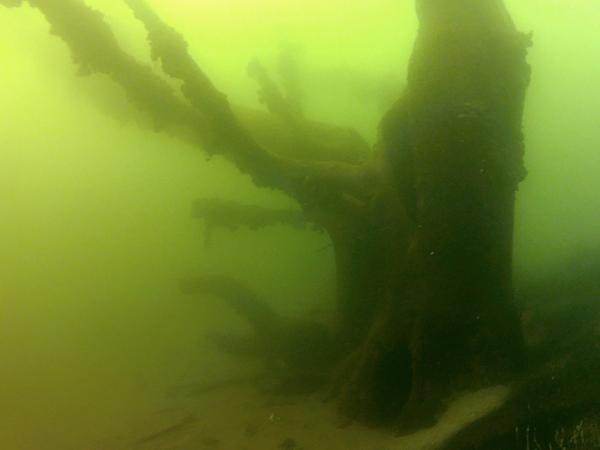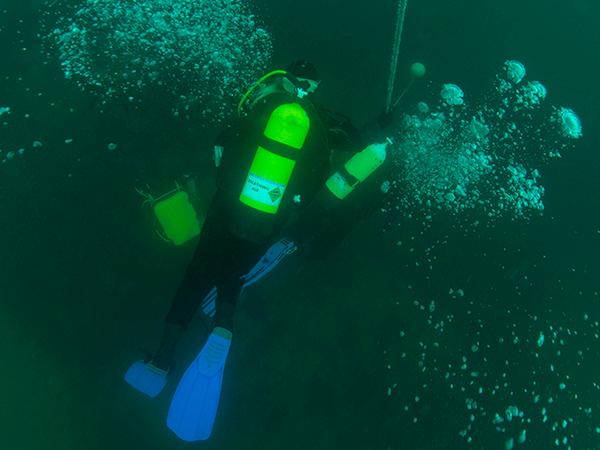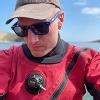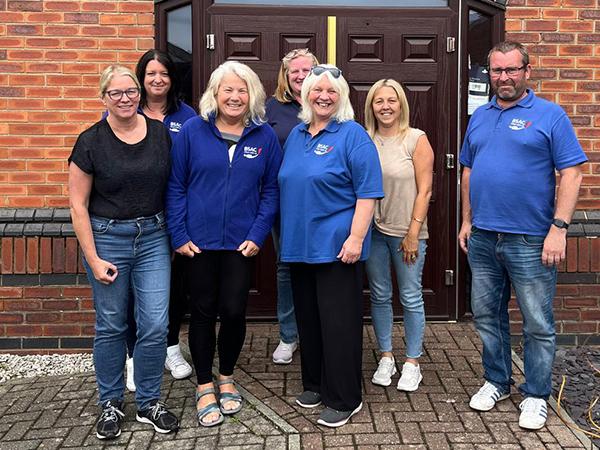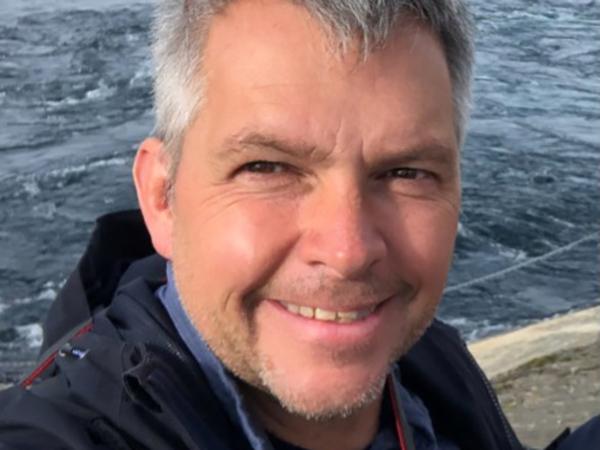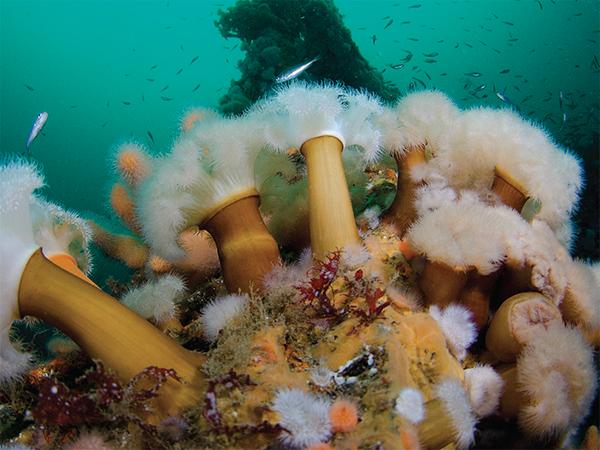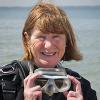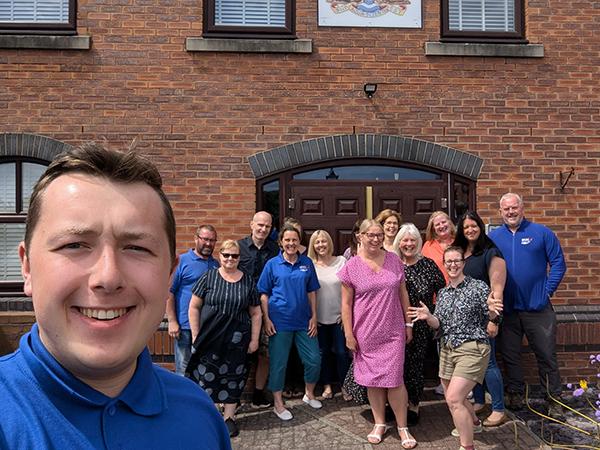BSAC's Annual General Meeting (AGM) will be hosted online on Saturday 13 May at 10am this year. We hope to see you there!
Navigation
- Membership and fees, strategy and governance
- Membership benefits
- Club support
- Safety and medical advice
- Diving and training
Membership and fees, strategy and governance
What are BSAC's plans for the next 5-10 years in terms of growth, member retention, and contributions to the diving and marine conservation communities?
The current strategic plan takes us up to the end of 2024. That plan is here: www.bsac.com/strategy.
The current thinking of the CEO beyond the current plan (there are no formal plans beyond the current strategy right now), is that we will continue to work towards our mission of wanting BSAC to be the ‘go to’ community for everyone wanting to learn about, enjoy and protect the underwater world.
To grow we will need to continue working on responding to a broader community of member interest. In particular, we’ll need to evolve to become more appealing to the younger generation, who will of course become the future of BSAC. This is likely to involve a more meaningful and significant organisational contribution to marine conservation, and development of the most accessible part of our current offering, snorkelling.
On member retention, we will continue to listen to and respond to what members are telling us. As an example of that commitment, we are currently looking at the recommendations that have come out of the recent member survey, to see how we can add more value to membership. The door is always open though, if you have ideas on how BSAC membership could be more valuable please let us know. Email info@bsac.com or call 0151 350 6201.
On conservation, our activity in this area will grow. The recent member survey indicated that the most important BSAC activity to members is safeguarding the UK’s precious waters and marine life for divers. Plus, the results indicated that many members want to take a more hands on approach with underwater litterpicks, citizen science projects and more. We’d like BSAC to be more collaborative with marine environment charities and to create more opportunities for members to help make a difference.
I would like to join the Council.
The BSAC Elections for Council are run annually. The next election will be announced around December 31 2023 and January 2024. It will get announced in Scuba magazine and on social media etc.
I have stepped back from open water instructing due to expense. I have given my time (as do all instructors) freely over the years but unfortunately the spiralling costs of training in open water are getting too much for me. I feel awful asking trainees for additional monies to cover travel, entrance fees etc. They pay enough just for club and BSAC membership.
BSAC offer a wide variety of courses with costs involved. Is this the way clubs should go? For me the voluntary aspect is fading fast.
The time that our volunteers and instructors such as yourself are very much appreciated. BSAC understands that the cost of living is impacting in areas of diving and where possible we are trying to ensure that we can offer value in our membership. We try to offer membership benefits – discounts with kit and suit suppliers. We are currently looking to see if we can negotiate any discounts on entrance fees to sites and will of course keep members updated.
Can the BSAC publish, annually, a 5 year financial forecast using current known business levels and trends and use this a base for explaining the expected impact of any proposed initiatives or strategy changes.
This is something that BSAC Council are looking at and we do of course align strategy with income and outputs. We can discuss this further at Council level.
Given membership decline with reliance upon the continued use of volunteers, what cost saving enhancement measures are proposed/ planned to prevent handing inflationary costs directly to the members through increased subscription?
BSAC has long had a tight rein on costs with governance procedures surrounding the procurement of goods and services, to deliver the best possible value to members.
However, the organisation has taken some additional steps with the aim of preventing costs being passed to members in line with the UK’s current rate of inflation.
The main cost to members (from head office) is their membership fee, second to that training pack costs. Memberships went up closer to 5% and training packs 5% in March 2023. Meanwhile inflation has been running at circa 10% since summer 2022.
In terms of cost-saving enhancement measures, the following are a few of the initiatives that have been either been delivered or are planned.
• Digital training packs (now online for most courses) offer a cost members/clubs a saving over the traditional hard copy packs.
• SCUBA magazine went to ten issues rather than 12, helping keep the cost of membership down.
• A new AMS (Association Management System) is planned for 2024. This will automate many current manual tasks, making the staff team more productive/cost-effective.
• The exclusive kit offers to members have been expanded and will continue to do so, to save members money on kit and dive travel.
BSAC’s governance procedures ensure a tight handling of costs (focusing on member value). This is built into our daily operations at head office.
I am a general branch member and was local branch member for 35 years and have been a BSAC member since 1979. I my various roles within the club we had many conversations regarding branch support and indeed struggled to get good regional (Eastern) support and regional SDC's. We had only one regional coach who took a big interest in our club helped guide and support us. I have read various candidate statements and I see a lot of words around world business and treating BSAC as a business, which I am not against, but also a lot of PADI and other qualifications, which I find a little bit concerning with regards to standards. So, my question is how much importance will BSAC/Council place on the BSAC system of training to avoid the slippage of standards in their push for commercial stability. I am proud of my training and experience and have never felt intimidated wherever I have dived in the world and I feel our level of training and knowledge of diving is one our big assets.
We agree, we are all really proud of BSAC training. Any development in the commercial area will be very carefully scrutinised.
What is impact to member numbers that have been attributed to commercial partnerships? What effect have these had in branch numbers and their ability to generate revenue.
300 members went through the branch centre scheme last year. Some are new members who have used the system, others are current members using the system to help progress their diving. We know the system has helped branches who struggle with their training. It is still early stages for the branch/centre scheme and difficult for us to see how this helped branches to generate income.
Does BSAC’s role as national governing body cause it to be risk adverse? Does this lead to a membership recruitment and retention issue. Could other agencies models be reviewed? For example PADI DSD Leader.
As the National Governing Body we aim to manage risk carefully. However as a diving organisation we would do this in the same way whether we were a Governing body or not. The Governing body status is very important to BSAC. All agencies share ideas and do meet once a year but we need to remember that we are membership organisation as well.
How do they see the future of diving? Bsac membership is dropping and the price of diving generally rising, the membership is more elderly and there seems to be a lack of younger divers 30 to 50.
We see the future of ‘diving’ being a more inclusive and welcoming sport, appealing to broader sections of society. BSAC’s sustainable future is likely to involve a broader church of opportunity – with snorkelling featuring more highly - to be more suitable for young people and families.
We’ll certainly need to evolve to become more appealing to the younger generation, who will of course become the future of BSAC. This is likely to involve a lot of listening and research, and most likely a more meaningful and significant organisational contribution to marine conservation, and development of the most accessible part of our current offering, snorkelling. Work is about to start on this very area – to focus in on young audiences and what we need to do as an organisation to create a value proposition that works for young people.
Can BSAC be publicised in a more overt high profile way, most people I work with have heard of PADI and SSI through resort holidays but never heard of BSAC. The belief is that its for rich people because the royals have been seen promoting it and today the diver of tomorrow has very little interest in royalty, they spend a considerable time viewing online clips so possibly we could engage them in that way. They often maintain contact with PADI centres local to their residence due to not realising BSAC offers so much and at a much cheaper price point, is recognised globally and has equivalent qualifications.
PADI does of course have an extensive network of dive shops overseas and the brand awareness is strong. Although there are no current plans or spirations to match the other training agencies on the ground overseas, there are plans to leverage our social media channels more effectively to reach out the already trained and other new audiences, with the aim of raising awareness and generating new members for BSAC.
High-profile blanket-type advertising (TV/magazine ads, billboards etc) is not as cost-effective for BSAC as other types of marketing such as social media marketing. We are looking to enhance our social media marketing over the next few months. And absolutely, short-form videos have grown enormously, particularly with young people. Watch this space! This area of digital marketing work will include supporting the branch network to leverage their own digital channels also, to help get the BSAC brand out there. If we all pull together as a community, we can generate considerable collective brand awareness.
Does BSAC ever audit branches to make sure they comply with BSAC values, for example the open and fair election of branch officers, try starting with the "Top 5" branches with the largest membership
BSAC branches are unincorporated member clubs and are responsible for their own management and financial affairs. Audit responsibility for a member club is by all members of the club through that clubs AGM.
However, BSAC branches are required to adopt Bye Laws that do not conflict with BSAC Articles of Association and to comply with BSAC Code of Conduct and related policies, rules, regulations and guidance, including accounting procedures, accessibility and inclusiveness and diving safety. If there are any identifiable and evidenced breaches of BSAC Code of Conduct by a branch then they can be reported to BSAC HQ for potential investigation.
Why does everything cost so much?
We are aware of the cost of living rises. We try to ensure that we offer as much value as we can in BSAC membership. Where possible we look to get savings and membership benefits which we can pass onto our members and branches.
BSAC clubs are suffering many negatives at the moment. Increasing costs, reduced members, reduced instructor activity due to costs. How can we combat these and what is BSAC doing to support clubs in these important problems?
We appreciate that many branches are experiencing unprecedented challenging times. There is support available online to help with member numbers and training, please see a little more on that below. Do contact HQ though if you would like us to guide you through the support and options (info@bsac.com / 0151 350 6200).
On member numbers there is a ‘Grow your club’ section online at www.bsac.com/growyourclub. It has a wealth of support and advice to help your branch attract and retain more members. If you are not sure where to start, we’d recommend you first going to the ‘Grow your club checklist’ at www.bsac.com/checklist. This will help you identify what you need to do to grow your branch. Help is on hand though at HQ! Please contact us at marketing@bsac.com or call 0151 350 6254 and we’ll do what we can to help.
On the training and instructor support side, there are support options available to you to mitigate reduced instructor activity. The Branch + Centre Partnership scheme (www.bsac.com/partnershipscheme) is designed to support new member training and membership growth. As and when you’d like to use it, the model is that new members join your branch, train at a BSAC training centre, then return to your branch as a qualified diver. This is a useful option for branches struggling with instructor activity. In addition, eLearning can be useful to relieve instructor time on delivering theory lessons and your regional coach may be able to assist by helping out with practical support. Again, help is on hand though at HQ. Please contact us at drt@bsac.com or call 0151 350 6203 and we’ll do what we can to help.
Unfortunately I am away on 13 May - would it be possible to receive a recording?
The AGM is being recorded and will be available on the BSAC website after the AGM in the following week.
What is the current UK based percentage of BSAC membership compared to the percentage of those with membership through 'overseas' branches/centres etc? Of those 2 figures, what percentage in each 'region' (UK & Overseas) are members of; a. BSAC Direct, b. A restricted membership or 'special' branch or c. A general diving/snorkelling branch?
91% of members are based in the UK, 9% are based overseas.
Of the UK members:
a. 24% are in BSAC Direct,
b. 12% are in a restricted membership or 'special' branch
c. 64% are in a general diving/snorkelling branch
Of the overseas members:
a. 32% are in BSAC Direct,
b. 18% are in a restricted membership or 'special' branch
c. 50% are in a general diving/snorkelling branch
Will welcome an update on BSAC's ambitions in the round.
Please see the BSAC strategy found here but I am more than happy to have direct contact with you and discuss this further with you . My contact details are maryt@bsac.com
How does BSAC council ensure that its Branches comply with its published constitutions and that Insurance cover is not adversely prejudiced or affected – specificallyAnd how frequently are branches audited to ensure that quality and consistency is maintained?
- 1. transparency in election of branch officers
- 2. branch accounting procures
- 3. Accessible & inclusive diving policies
- 4. Member training and competence
BSAC branches are unincorporated member clubs and are responsible for their own management and financial affairs. Audit responsibility for a member club is through that club's AGM.
However, BSAC branches are required to adopt Bye Laws that do not conflict with BSAC Articles of Association and to comply with BSAC Code of Conduct and related policies, rules, regulations and guidance, including accounting procedures, accessibility and inclusiveness and diving safety.
A small number of branches have limitations and specific restrictions on membership due to their structure or particular constraints and so may not fully be open and consequently may have more restrictive Bye Laws, which still must be agreed by BSAC.
Is BSAC going to take a more hands on approach to the climate crisis and protecting the oceans we all love?
Thanks, an important question. You ask when BSAC is going to be more hands on. This is an intriguing question, because you are BSAC, I am BSAC. BSAC is a volunteer member organisation. The members are all BSAC, so we all have a requirement to be more hands on. Your point is well timed-so thank you.
Climate change is a huge topic involving both governments and individuals. In the end as a membership organisation run largely by volunteers we have two paths of influence.
The first is to ensure that members have access to best possible action organisations if they wish to go down that route, for example, the Marine Conservation Society (MCS) and Surfers Against Sewage (SAS). Both organisations are set up for active public campaigning. It is what they are for and what they do. They are effective and respected.
Another influence members can have is to respond to official government consultations about the health of the seas and the protection of the environment. As NGB we officially respond to such consultations and use our other contacts to influence their responses. We also invite members to contribute as individuals. This year has focused on Highly Protected Marine Areas and the creation of bye laws to prevent bottom towed fishing gear being deployed in certain pilot areas.
One of our members has started to make seagrass and oyster rewilding an important focus of BSAC activity. Both are highly efficient at carbon capture, with maerl doing better at carbon sequestration. On the south coast kelp regeneration projects may lead the way for more of our members to be directly involved - a project not yet started, but I am looking for some volunteer who might wish to be involved in starting this up, and perhaps taking it UK wide.
We could ask all members to contact their Members of Parliament for an appointment to discuss issues of pollution, sewage, the opening of a new coal mine in contradiction of previous promises at the Glasgow Conference etc. After the May local elections, the opportunity of engaging their attention might be better, let’s see. Again, it would be good if someone would like to volunteer to work with me on how to approach this.
Once DEFRA lifts its embargo we are hoping to showcase a new code of conduct to encourage healthy seas and an awareness of marine life, which in itself will help to reduce carbon emissions.
The second path of influence is our personal behaviour, in all aspects of life. With 22,000 ish members we can make a difference. This month in SCUBA magazine we are introducing Kerry MacKay. Each month she will be discussing ways in which our personal behaviour can impact on carbon production and climate change.
This is really important. We know that litter picks and beach cleans are reducing the amount of plastics in the rubbish we pick up-and that keeping pressure on government and manufacturing companies has meant that personal wipes are going to be plastic free from the middle of the year.
I have an idea. You want BSAC to be more hands on. Would you like to either join my group, get involved in the day-to-day work of suggesting ideas and helping to make them happen?
Emails are less time consuming-but direct involvement is more interesting and would only be a couple of hours a week, and much more satisfying. If you would you prefer just to email me a list of your ideas. We can work on those by email.
Alternatively-how about once a month doing a diary of what you have done this month to help reduce the pace of climate change. I have in mind something like
‘This month I have given up using my hairdryer every day, so saving 2kg of Carbon emissions in a year. I have also decided I will only shower every other day and for less than four minutes.’ You could then invite members to join you in making a positive effort to reduce climate change. We could then get this out on social media.
If you would like more discussion please email me and we can sort out a time to talk. Again thank you for such a pertinent question. I would love to work further with you and your ideas. Think about it and email heritage@bsac.com.
The British Sub Aqua Club is a members Club, whose membership elected Council both represent and are responsible to it members. Sport England state "Transparency enables stakeholders to have timely access to important information about the organisation, thereby improving the accountability of the organisation, and helping with stakeholder engagement" yet the Council of the BSAC have chosen to limit its transparency through publishing an alternative form of minutes, sanitised for members. When looking at Sport England and its transparency, its sets an example to the sports Governing Bodies it appoints, by openly publishing its minutes. UK Sport and Swim England are two other examples of bodies who are transparent about their activities and actions. Swim England goes further in publishing its sub-groups minutes also. One might argue that these bodies cited above, are publicly funded, and therefore transparency is required. Let us not forget that BSAC is financed by its members, it exists for its members alongside its NGB status conferred by Sport England. It too has accepted public monies alongside its membership fees income.
In the past when BSAC has been asked about being open and transparent about publishing minutes BSAC has responded along the lines of minutes containing commercially sensitive information as its reason for not being fully transparent. It has done this without allowing further challenge, and that seems wrong. Sport England for example, manages perfectly well to publish minutes in an open manner containing financial information and appears to manage any commercial information through its minute writing. BSAC did previously publish the full "official" minutes in the past and decided to revoke this. Surely not all meetings and subsequent minutes contain commercially sensitive information, surely not all minutes publish commercially sensitive information in full? This seems like a poor reason not to be fully open with BSAC's membership. The members of BSAC should be able to see the same minutes that Council members see, BSAC is not a secret organisation. Hiding behind a veil of commercial sensitivity smacks of a lack of accountability and scrutiny.
What unchallengeable reasons does BSAC Council have for not being fully open and transparent with its own membership, that allows scrutiny by its membership, in line with Sport England's Governance Guidance, and not fully publishing the minutes of its Council meetings in full as it did in the past?
Thank you for your question. BSAC has published a synopsis of every Council meeting since November 2017 (thirty five to date) and prior to that published publicly facing minutes, the former typically between 1 to two pages in length, the latter somewhat more detailed.
It is true that some Council meetings do address matters that are commercially sensitive. Periodically disciplinary matters which are also by definition highly sensitive are also the subject of Council meetings. However the inclusion or otherwise of these topics is not the main reason why full or redacted minutes are not published.
The purpose of the synopsis is to provide BSAC members with a succinct, informative and timely summary of the key issues Council is addressing, rather than full minutes that typically run to 6 pages or more (excluding annexes) and which encompass detailed agenda items, actions arising as well as matters of more routine process and procedure.
The provision of the synopsis also sits alongside regular communications on the implementation of BSAC's strategy (typically publicised through SCUBA), HQ communications to members and regular all member surveys (the most recent of which was conducted in the past few months).
Council is formed of volunteers from across the BSAC community and is committed to open governance in the interests of all members. The Hon Secretary will therefore review the content and form of the synopses published to members and identify where improvements can be made to ensure continued member confidence.
Membership benefits
Why do we pay for 3rd party liability insurance? Has there ever been a claim on this policy? If so what are the circumstances that led to the claims and was any claim successful?
If it is believed that 3rd party liability is necessary can we investigate the establishment of a captive insurance company?
The BSAC liability insurance is in place to protect members when they are unintentionally negligent, causing injury or damage to property. This can be when using public premises, dive centres and any other facility when diving, training and for branch events. The cover is worldwide (excluding USA/Canada, and UK Sanctioned countries). There is an existing claim, with unlimited legal fees to support the member being sued. This member would have lost their home, livelihood and all of their assets, just with the existing cost of the legal fees, and the case is not concluded yet. There have been similar cases in the past relating to injuries and fatalities, the claims paid out is in the millions not thousands of pounds. These have related to injury, loss/damage to property and fatalities.
Could you provide more information about insurance support that we can receive as members when going diving? It's so that any of us who travel and decide to go diving see where we can find this.
Your BSAC insurance is not a travel policy but does cover you for any liability to a third party whilst you are diving. Please see the document at www.bsac.com/document/insurance-qa-2023/ for further details.
If practical, and secure, would BSAC consider a Chip & Pin style Membership card containing embedded courses and additional qualifications?
Will BSAC bring back a dedicated email service for members, as you had in the late 1990s?
A chip and pin style membership card is an interesting idea. We can discuss it. However it is worth noting that more members are requesting BSAC to look at not having so many plastic cards in use in order to be more environmentally friendly. This will form part of the decision as well.
Club support
The BSAC anti-bullying statement appears to be focused on children. Is that the intention or does it also apply to adults?
Thank you for pointing this out . This policy does also apply to adults but we will have this amended.
Could there more new dive places and Barry BSAC need new members as there is only 4 of us at the moment and would very much like pool situation sorted.
This is something that we can look at discussing with you directly. We can certainly help in looking for a pool, pool sharing etc.
How is BSAC addressing the issue of diversity and inclusion within the diving community, and what efforts are being made to attract a more diverse membership base?
One of BSAC’s core values is to ensure diving is accessible and attractive to the most diverse audience possible. It is recognised that there is work to be done here, to improve the organisation’s diversity and to ensure it is welcome and accessible to all. In fact, it’s a key theme in the current BSAC strategy.
Some of the activity already started includes:
- Blogs from the volunteer-led IDEA (Inclusion, Diversity, Equality, Accessibility) Group to encourage improved inclusion and accessibility.
- Launching a new equality, diversion and inclusion web section to support branches and members to encourage all to be aware and take responsibility (www.bsac.com/edi)
- Launching the free EDI Language Awareness course for all members (and promoting to instructors and Branch Officers) (www.bsac.com/edicourse)
- Enhanced support for branch Welfare Officers including webinars and new online support section (www.bsac.com/advice-and-support/club-support/duty-of-care-and-welfare/welfare-officer-role-outline/)
- Automated emails to new Branch Officers highlighting duty of care responsibilities, including support on diversity and inclusion (www.bsac.com/advice-and-support/club-support/duty-of-care-and-welfare)
- Use of more inclusive imagery and language in BSAC’s official materials
In addition, there will be focused project work on attracting and keeping more young people and women, in BSAC. This work will gain momentum through 2023.
Are there plans in place to make BSAC branches more accessible to those who don't speak English or for whom English is not their first language?
Translating training materials into other languages is an expensive process so there needs to be a strong business case for it to happen. As requested, Student Guides for the Ocean Diver course can be supplied in a limited number of languages (German, Russian, Egyptian Arabic)
Having been a member of an overseas BSAC club for 14yrs I feel that we are the forgotten part of BSAC. When will BSAC start giving more support to overseas clubs?
We are sorry that you feel like this. We have tried to move into providing more digital products for overseas branches along with iSCUBA. We have also been very aware of featuring overseas branches in SCUBA and partnering UK branches when going on holiday to overseas destinations with BSAC branches. It was good to see that an overseas branch won the Heinke Trophy this year as well. If you have some ideas which you would like to share about how we can support you more, then please do let us know and we can discuss it further with you. Please email maryt@bsac.com.
How can University clubs be encouraged to attract more students and what support can BSAC offer?
University branches have a unique recruitment advantage in that there is a cohort of young adults keen to explore new opportunities joining the university each year. We generally find that well planned Freshers events with key information points presented to student at these events works very well. HQ put together a wide range of promotional and recruiting material for university branches around feathers time and this is met warmly. To attract more students usually the answer is demonstrating the fun that people can have diving in the UK and aboard having plans in place with opportunities for students to get qualified easily and quickly and get out diving! The uni project is working closely with universities to support these efforts along with the new university representatives' team.
What can we do to attract more students to attend diving courses?
There is a wealth of ‘how-to’ type content online at bsac.com/growyourclub to support branches in recruiting new trainees. Having a strong digital presence is key. A great place to start in the website section is with the 'Grow your club checklist'. In around 20 minutes you'll be able to identify what you can do to grow (and retain members) in your branch. There are also specific support sections on how to recruit Try Divers and new trainees. If you need further help to get you started, please contact BSAC HQ.
Can further funding and teaching assistance be provided to university BSAC branches. Due to the high 'turnover rate' can the costs of teaching be absorbed by BSAC for instructors on university club and training trips?
This is a very common question and generally the answer is yes. Yasmine Thorn, BSAC university co-ordinator has recently put together a new team of uni reps with the aim of connecting university branches locally with instructors and branches in their area. We are aiming to help build a more connected network of divers in the university space who can support with training and more. If uni branches are struggling for instructors contacting BSAC HQ, your local uni rep or myself is the first step. We will then look to see what support is available in your area and what support we can put in place for you.
BSAC recently have introduced a wide range of discounts for university branch members on courses, membership, multiyear memberships, and ITS events. This aims to make it cheaper overall for students to enable them to afford more in terms of instructing and diving fees. This is something we will be continuing into next year as well. We are always looking into funding options and if they do become available, we advertise them directly to university branch officers. Unfortunately, money is a finite resource, and it isn't feasible for BSAC to cover all instructors' fees for all university branches but if there are any options we do encounter we will always pass these on. We are also producing a university branch guide which has a section on funding and finances that might offer some support to branches that are struggling in this area.
Are there plans to make it easier to organise trips with other clubs, for small clubs it's difficult to create trips with few members?
We’re aware of other branches with this challenge who use social media to co-ordinate with other BSAC members so suggest that this should be considered. Regional Facebook pages are an excellent way to achieve this.
How do we intend to further spread BSAC to the community, are we allowed to post on our own social media about BSAC , is there a poster that we are allowed to use as members to post on them , i.e Instagram, Facebook, Twitter.
The most effective way to spread the BSAC word and reach new people is to use digital marketing tools such as social media and websites; generating great content that engages target audiences. BSAC’s great strength is its community and if we all reach out in that way, we will collectively all gain much more.
So absolutely, yes, you are very much free to post on your own social media about BSAC. We’d love you to! You are free of course to share any of BSAC’s social media posts, blogs, web pages, YouTube videos, anything you like! There are some social media friendly video resources on the website that you can share, as a branch or member. We’ll be adding to these over time. They are online here.
Safety and medical advice
When are we going to have diving doctors for age related medicals, etc in Wales.
There aren’t any plans to have medicals based on age. The self declaration medical is the method by which those requiring detailed medicals are identified.
What measures are being taken to develop a comprehensive system for recording medicals on line?
We are currently looking at a new AMS system for BSAC, medicals along with other areas will be looked at as part of this transformation to a new system.
Diving and training
I have stepped back from open water instructing due to expense. I have given my time (as do all instructors) freely over the years but unfortunately the spiralling costs of training in open water are getting too much for me. I feel awful asking trainees for additional monies to cover travel, entrance fees etc. They pay enough just for club and BSAC membership.
BSAC offer a wide variety of courses with costs involved. Is this the way clubs should go? For me the voluntary aspect is fading fast.
We really appreciate all of the hard work you and all our volunteers give to BSAC. Volunteers are the core of BSAC. We also understand more than ever before we need to ensure that BSAC offers value to our members. We are currently working with other volunteer organisations to see how we can all support our volunteers more. As you say we need to ensure that volunteers remain with BSAC. We do offer a variety of courses via our regions and branches and aim to keep these prices as reasonable as is possible.
The falling membership of BSAC has been ongoing for over 20 years. Our club has seen a drop in membership to a third of what it was in the early 2000s. We see that part of the problem is that of an ever increasing onerous training regime to become an instructor; very few people are coming forward to become OWI and without instructors BSAC will fail as an organisation. In BSACs Strategic Plan 2021-2023 it is stated that BSAC will be ‘introducing a programme of continuous professional development for all instructions to maintain standards’. This will lead to a further fall in instructor numbers.
My question is - Should BSAC be streamlining and simplifying the training of OWIs which will lead to more people being trained and therefore increasing membership of the organisation?
High quality instructors are critical to the training of competent divers and the existing process has been shown to be effective in achieving that. Last year (2022) was the most successful for training OWIs since at least 2013 and it is hoped that branches will see the impact of these additional instructors.
Looking forward, we’re hoping to introduce measures will improve the quality of instructors without adding an additional burden. The revised Dive Leader course will have more of a focus on supporting trainees which it is hoped will help branches struggling for instructors and improve the quality of people becoming OWIs. We’re also hoping to introduce eLearning for the Instructor Foundation Course (IFC) and Open Water Instructor Course (OWIC) which will make the courses less demanding and provide a resource for people to revisit if they need to be refreshed.
When will BSAC accept higher instructor qualifications, for example SAA Regional Instructor.
Along with other agency qualifications that meet ISO24802-2 (2014), BSAC recognises SAA Open Water Instructor as similar to BSAC Open Water Instructor and offer a straightforward crossover process.
There is no industry standardisation of higher level instructor grades so each one is considered on a case by case basis. Our assessment of the SAA Regional Instructor qualification is that it doesn’t align with any BSAC instructor grades which is why we don’t offer equivalence. We’re happy to have this reviewed but would need a copy of the latest SAA Regional Instructor syllabus and process so that it can be looked at by Instructor Training Group.
Are the committee aware of the proposals by the Scottish government to impose High Protection Marine Areas, covering approx. 10% of coastal waters around Scotland. Whilst there are separate commercial and economic impacts that will effect aquaculture and fisheries. Have BSAC and their Scottish associates checked if this could impact diving activities? The current proposals restrict any activity, including anchoring and damages to the seabed. It would technically include shot lines, possibly diving activity which could impact the marine environment. Only emergency situations will allow entry into these areas. However, you may have missed the boat, as the hotly contested deadline for consultation has now recently passed.
Many apologies, but we completely missed the deadline. No excuses-we knew about the consultation-but did not read the closing date carefully enough.
We are talking to colleagues to see what post consultation activity is coming up.
May we ask a favour of you? Would you be prepared to join our team with specific reference to Scottish waters? All we would ask is that you keep us updated with Scottish Waters consultations, licensing applications etc. We could so with your assistance. It would only be to alert us to consultations, discussions etc, and remind us on a weekly basis if it looks like we are missing something. It is one of our concerns that we are being too Anglo-centric.
We are on a number of groups who also missed this deadline-would you plug the gap for me? From a personal viewpoint we would love your help. Please email heritage@bsac.com.
Can BSAC consider changing the name of the “Advanced Diver” grade to expedition diver or something other than Advanced Diver? This will stop the confusion and association to PADI Advanced Open Water grade. The BSAC has progressed, online learning, the app, but advertising is something we may need to explore to make BSAC more of a known brand associated to SCUBA, Scout badge possibilities what other areas could we expand into.
The Diver Training Programme (DTP) is under continuous review and a revised Dive Leader course will be published in the next few months. Once this is complete then focus will switch to Advanced Diver which will almost certainly include a change of name that is hoped will better reflect the course contents and remove the confusion that exists with junior grades from other agencies, such as PADI Advanced Open Water.
Provision of improved digital services to members, such as eLearning and the App, will continue to be a priority and it is expected that further improvements will be seen in the short-medium term.
Advertising and promotion of BSAC is something that we are looking at. Of course cost and return on investment is always high on the list.
Safeguarding guidance seems to assume that instructors will always be present when junior members are diving. What measures are being taken to support junior members diving when instructors are not present?
BSAC Safeguarding policy sets out:
“BSAC Officers, instructors, adult members and parents/carers have a duty of care to safeguard children in their branches. The CWO does not have sole responsibility for safeguarding and promoting the welfare of children in a BSAC branch. That responsibility lies with all adults associated with the branch.”
The last sentence makes clear that the duty of care rests with all adults associated with the branch and does not rest with one individual.
The Safeguarding policy does set out specific requirements for people who are in a ‘regulated activity’ as defined by the Disclosure and Barring service (DBS), for individuals who have “frequent and significant contact with young people, unsupervised” and on that basis those individuals should have a DBS check. Only those who meet the criteria for a DBS check are eligible for such checks under DBS rules. DBS checks are part of the Safeguarding system and neither the only action to be taken nor absolves adults of their responsibilities to safeguard children.
My question is in regard to members using Dive Centres for obtaining Ocean Diver qualification. I would like to know what procedures are in place to receive feedback from those members that go down this route to ensure that the training given is in line with BSAC policies and procedures.
I ask this as one of our members went down this route and has never been approached to ask for feedback.
All members who achieve a diving qualification are sent an email requesting their feedback on the training process. Sometimes these end up in spam folders, or are missed, which maybe why your member hasn’t received it. If they contact qcards@bsac.com then we can send them another email.
Experienced divers who have been trained by other agencies and join a BSAC club appear to be more likely to be retained than newly trained ocean divers. This is my branch experience and makes sense, with the growth of "bucket list" tick boxing meaning that many people just want to have done diving, rather than to do diving. This contributes to instructor burn out. With this in mind, what can BSAC do to intensify targeting of PADI and SSI qualified divers? We are still lacking a clear and advertised PADI AOW to BSAC Sports Diver course, which would be a start, giving a core "product" for targeted marketing. Does the club think that generating and marketing this should be a priority?
BSAC welcomes divers trained by other agencies (https://www.bsac.com/already-a-diver/qualified-padi-diver/). We encourage them to continue their training and diving with us.
It is difficult to provide a dedicated training route for other agency Advanced Open Water (AOW) divers as their training consists of various modules, some of which are discretionary. That is why the following text appears in the Sports Diver Instructor Manual:
The AOW qualification includes some skills that would appear to be comparable with those of Sports Diver. For example compass is a mandatory component of many such courses. Instructors should identify if such mandatory training was completed and take into account how long ago, in what conditions and the frequency with which the skill has been used since qualification. The instructor can then use their judgement of whether a simple check may be necessary, or the full training sequence be required.
I qualified as a diver in 1974. I have numerous BSAC diver training courses under my belt, all taken in the 1980's and 1990's., I would like to see refresher training for divers like me who are getting on a bit but still like to dive.
I went on an Automated external defibrillators (AEDs) short course and was surprised how much the resuscitation process has changed since I did BSAC diver rescue and O2 admin courses and others. If as this document says the BSAC age profile is getting older, then there maybe others like me.
Many branches complete annual refreshing training in core rescue skills such as AED, BLS and oxygen admin which is believed to be the best way to achieve what you suggest. This should be something that can be organised by your Training Officer but if you need further support then this should be something the Regional Coach can provide.
More training north?
It would be useful to have more information including what sorts of training and where in the North? Please email drt@bsac.com
When will primary donate/hog loop be an accepted configuration choice as opposed to being limited to an SDC and external training?
The BSAC Alternative Source (AS) policy (https://www.bsac.com/this-is-bsac/bsac-rules-and-policies/bsac-alternative-supply-as-policy/) explains that AS take is the BSAC preferred method to donate gas. This is taught through the Diver Training Programme (DTP) and is broadly in line with other major UK training agencies which may be useful if people are diving in mixed groups.
Alternative methods, such as Primary Donate (PD), are an accepted configuration choice but divers who use them must have received formal training and discharge their duty of care to their buddy. BSAC recognises other agency PD training, and we also offer our own course for those who wish to use the technique.
What is the vision of structure of training courses in the future, bearing in mind that one of the criticisms of commercial alternatives to BSAC is that they have multiple small qualifications that provide dive centres with more opportunities to make money ?
We are looking at some of our courses becoming more modular. This is not about making money, it is about ensuring that the courses are more accessible and easier to do for people who are busy and struggle with finding time to do the course in one go over a weekend.
Does BSAC recognise that many materials and courses are outdated and not taken seriously in the eyes of 'serious' diver / the technical community? Will BSAC refresh courses with modern thinking to remain competitive, or will BSAC continue to issue training materials for courses such as ADP that are probably twenty to thirty years out of date and not taken seriously by any of the diving community?
For many years BSAC trained technical divers have been involved in ‘serious’ diving that is at least the equal of divers from many other training agencies.
Our MOD 1 CCR course has recently been refreshed to align with the newly published ISO for rebreather training and the others will follow in due course. Both the ADP and Twinset course are in the process of being refreshed but will continue to be tailored to BSAC’s specific requirements.
Should Sports Divers only be allowed to undertake the Instructor Foundation Course when they have gained a certain number of dives. It is currently the situation that any member can simply pay BSAC to attend the course immediately after passing their Sports Diver qualification and then go on to instruct with very little diving experience.
Sports Divers who complete the Instructor Foundation Course (IFC) gain the Assistant Diving Instructor (ADI) qualification. This allows them to teach under supervision from an Open Water Instructor (OWI) or higher which it is believed mitigates the limited diving experience that some Sports Diver have. Further details of what lessons an ADI can teach can be found here.
Given the struggle with member numbers what is the strategic plan for snorkelling clubs to boost their numbers which in turn follow onto diving? Currently the snorkelling syllabus and QRBs are not designed to enable children to effectively progress through their training.
The Dolphin snorkeller course is specifically designed for children and includes stickers that can be awarded after each stage is completed. It has been used by many branches to engage children so that they can then progress to either Snorkel Divers or into the Diver Training Programme.
As a newer member of the club it is clear to see training equipment is a hurdle to getting new members. In the past 14 months myself, son, daughter and wife have all gone through the training process so I can see how hard it is for the club to keep up with the need for kit. The amount of new Ocean Diver trainees is restricted by the amount of kit available. This must be the same nationwide. Is there anyway BSAC can negotiate a deal with one of the big providers to get training kit cheap to enable local clubs to be able to afford it and keep a stock of new and up to date equipment? With the amount of clubs around the country who are in the market for training kits there must be a deal which can be done. Maybe start with asking the clubs and come up with a figure before you sell the idea to the big suppliers. ie if you can do us a deal we expect you will get orders for 100, 200, 300 x BCD's, Reg's, etc, etc in the next 6/8 months. Even a payment plan for clubs to cover new kit? By the way we love diving and are really pleased we chose BSAC, we feel we get high quality training at our pace.
It is great that your family value the training that you have received and are enjoying diving.
We have a number of kit partners who offer discounts to BSAC member which can be accessed here. As you’d expect, we are always looking to work with other equipment partners so advise regularly checking the page.
More questions and answers will be added as we receive them.

